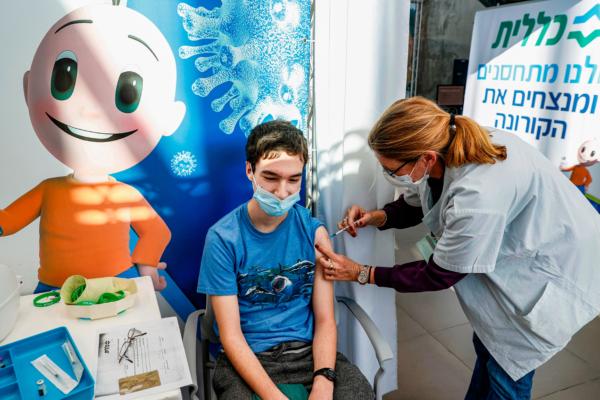Bill Gates Investing $40 Million for mRNA Vaccine Development in Africa

The Gates Foundation is spending $40 million on countries in Africa and other economically backward nations to produce new mRNA vaccines in efforts to prevent against diseases like tuberculosis and malaria.
While $20 million will go to Quantoom, two research institutes in Africa—located in Senegal and South Africa—will get $5 million each. The remaining $10 million will go to vaccine manufacturers from low- and middle-income countries.
The foundation argues that mRNA vaccines have “simpler research and manufacturing processes” compared to traditional vaccines. As such, expanding the technology to countries like South Africa and Senegal can lead to the development of low-cost mRNA vaccines for diseases like malaria and tuberculosis.
The $40 million funding adds to the foundation’s previous investment worth $55 million in mRNA manufacturing technology.
“Putting innovative mRNA technology in the hands of researchers and manufacturers in Africa and around the world will help ensure more people benefit from next-generation vaccines,” said Dr. Muhammad Ali Pate, Nigeria’s coordinating minister of health and social welfare and a global expert on vaccines.
“This collaboration is an encouraging step that will increase access to critical health technologies and help African countries develop vaccines that meet the needs of their people.”
“There's not a single study showing that the messenger RNA is broken down” in the human body once it is injected, he said. “There's not a study showing it leaves the body.” Since the vaccines are “made synthetically, it cannot be broken down.”
For the COVID-19 vaccine, the mRNA sequence was copied from the virus's spike protein, which was considered at least one of the aspects of the SARS-CoV-2 virus that made it so harmful to the body.
“We have the spike protein—the lethal protein from the [COVID-19] vaccines found in the human body after vaccination—circulating at least for six months, if not longer. And if people take an injection in another six months, there's another installation in more circulating potentially lethal protein,” Dr. McCullough said of the COVID-19 mRNA vaccine.
Potential Side Effects from COVID-19 mRNA Vaccine
A recent study published in Frontiers in Immunology has raised concerns about potential alterations to base functions of a person’s immune system by Pfizer’s mRNA COVID-19 vaccine.

A teenager receives a dose of the Pfizer-BioNtech COVID-19 vaccine at Clalit Health Services
in Tel Aviv, Israel, on Jan. 23, 2021. (Jack Guez/AFP via Getty Images)
“This is particularly relevant in children as they: have extensive exposure to microbes at daycare, school, and social occasions; are often encountering these microbes for the first time; and receive multiple vaccines as part of routine childhood vaccination schedules.”
Heart Issues
Multiple studies have confirmed links between both mRNA COVID-19 vaccines and COVID-19 infections with heart problems.FDG is a glucose analogue and marker of inflammation in the body. Higher FDG levels indicate heart inflammation, the authors wrote in the study.
Getting a jab was associated with “elevation of markers of myocardial injury” in about one out of 35 individuals (2.8 percent), the study said. In a generally healthy population, this level would be around 1 percent, it stated.
The researchers followed the subjects who experienced adverse effects post vaccination for 30 days and found that half of them had unusually high levels of high-sensitivity cardiac troponin T, which is an indicator of subclinical heart damage.
Amid overwhelming evidence of mRNA vaccines leading to heart complications, some studies also suggest that the COVID-19 infection may be more dangerous than the vaccines.
“Overall, the risk of myocarditis is greater after SARS-CoV-2 infection than after COVID-19 vaccination and remains modest after sequential doses including a booster dose of BNT162b2 mRNA vaccine (Pfizer),” it said.
However, “the risk of myocarditis after vaccination is higher in younger men, particularly after a second dose of the mRNA-1273 vaccine (Moderna).”
“There are multiple studies now from around the world, Brazil, Australia, United States that show that over time these vaccines, these mRNA COVID-19 products actually increase your chances of contracting COVID-19.”





















